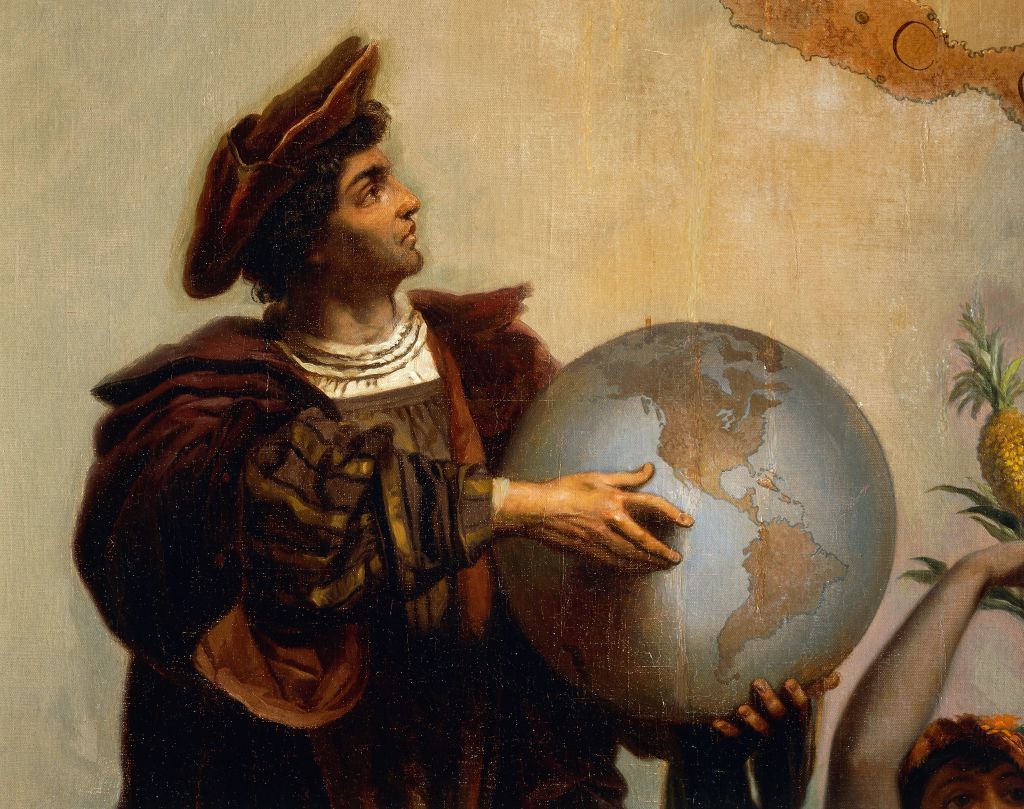The government of Trinidad and Tobago has announced that for the first time since its independence in 1962, it will remove images of Christopher Columbus’s three ships — the Santa María, the Pinta and the Niña — from its coat of arms. The move comes as part of an effort to “strike a “dagger through the heart of colonialism”, and other Caribbean countries such as Grenada and the Bahamas have also reportedly contemplated cleansing their heraldry of all traces of Columbus.
This campaign to purge national iconography of symbols “that glorify slave owners, colonisers and oppressors” comes in the context of a movement from these countries to extract reparations for the Atlantic slave trade. It is ironic that despite the cheap, radical nationalist rhetoric, this reparations campaign is still premised on the subaltern Caribbean nations being dependent on the charity of the more powerful Western powers, a far cry from former Ghanaian president Kwame Nkrumah’s declaration that “the less developed world will not become more developed through the goodwill or generosity of the developed powers.” Of course, any reparations, if they do occur, will more likely be fleeced for the enrichment of national elites than repurposed for social development.
But there is a wider and deeper question about the meaning of Columbus — who acts simply as an avatar for the European colonisation of the Americas — within world history.
The common narrative now is that Columbus’s journey into the Americas instigated 500 years of Euro-American racism, genocide, slavery and oppression. After all, didn’t Columbus himself enslave the indigenous Taino people of Santo Domingo? Wasn’t a consequence of the so-called “discovery” of the Americas the development of the Atlantic slave trade, distinct from pre-modern slavery because of its racialised character? Wasn’t another consequence the extinction of various indigenous tribes and civilisations which had already inhabited these lands?
What is neglected in these narratives is that these ills were the norm in human history and accepted as normal practice in civilisation long before Columbus made his voyage. For thousands of years across the world, human communities extinguished other groups through conquest, enslaved those they didn’t simply kill, and enforced dominance over the defeated peoples.
The creation of modern civilisation, the epochal bourgeois revolution of the world and society, of which Columbus’s voyages and the “discovery” of the Americas were a part, did not so much ignite five centuries of oppression as it did five centuries of emancipation for the whole world. As Hegel put it, this was the “blush of dawn, which after long storms first betokens the return of a bright and glorious day”. It was because of the world-historic implications of Columbus’s exploration that the real potential of overcoming generations of slavery, oppression and racism in the name of universal freedom first emerged.
Moreover, slavery — whether racialised or not — is not the conspicuous fact of Western civilisation: its abolition is. It may be a cruel irony, but history is a tragedy rather than a morality tale, and as a world we have to be able to reach some kind of acceptance of this story — with all its complications.
The core flaw with the drive to purge Columbus, beyond the fetish for symbolic change as a substitute for political and social transformation, is the Sisyphean task of trying to make the past “right”, to the point of forgoing the possibilities of the uncharted future. Implicit under this imagination, Caribbeans of 2024 are still victims of the past, encumbered and traumatised by it, not authors of their own future.
In 1962, the great Trinidadian intellectual C.L.R. James wrote of how West Indians, after gaining independence, were “determined to discover themselves, but without hatred or malice against the foreigner, even the bitter imperialist past”. If in the process of discovering yourself as a nation, you are still trying to bring about “justice” for the wrongs of the bitter imperialist past, then perhaps you remain more dependent on the coloniser than you think.











Join the discussion
Join like minded readers that support our journalism by becoming a paid subscriber
To join the discussion in the comments, become a paid subscriber.
Join like minded readers that support our journalism, read unlimited articles and enjoy other subscriber-only benefits.
Subscribe